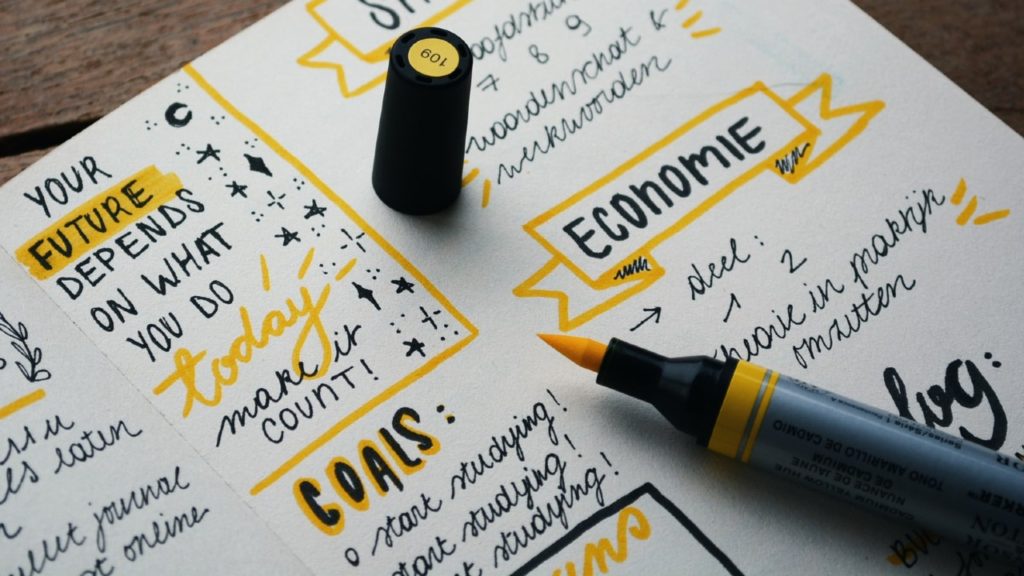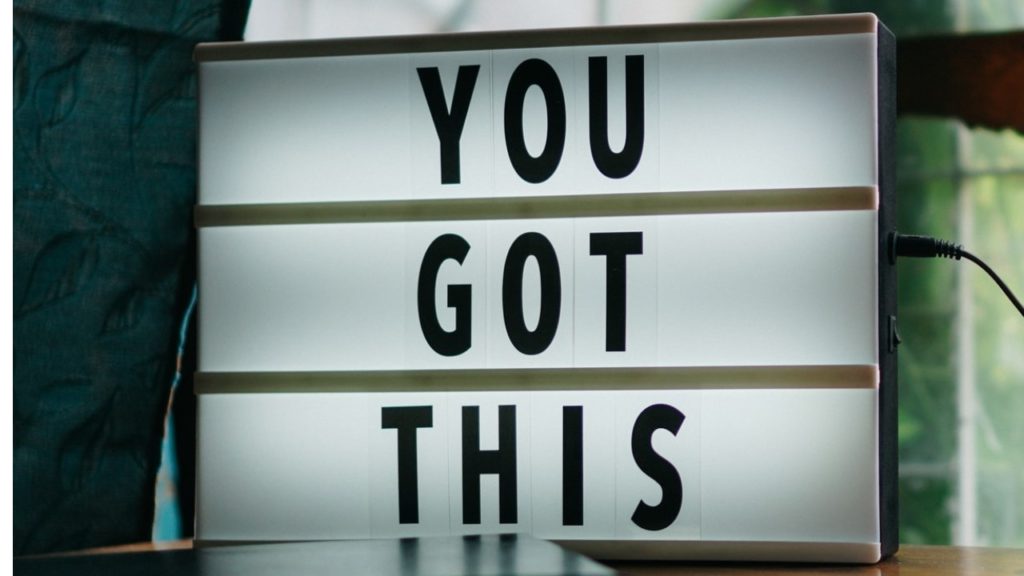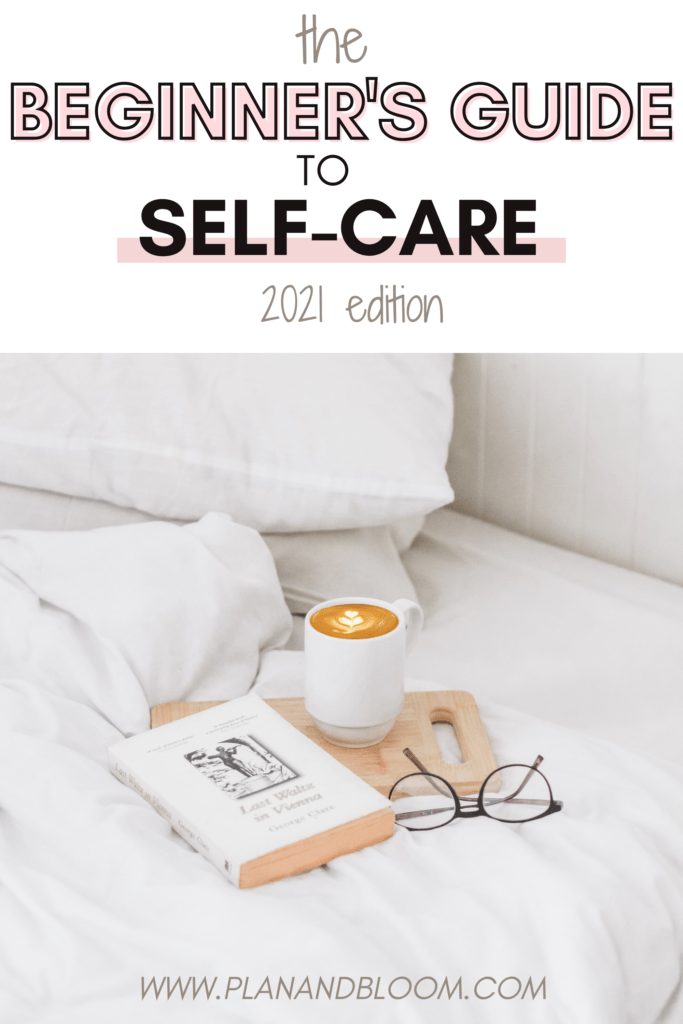Self-care is critical because you can’t be your best, show up, and thoroughly enjoy your life if you don’t have the energy reserves to do so. Honestly, I am bad at balancing work with the rest of my life. But I am getting better at practicing self-care and prioritizing my health above my job.
There are days that I have enough energy to walk from my desk to the couch and crash. There are many days where I am chained to my computer for 9, 10, 11 hours at a time. That leaves me burnt out, strung out, and with very little energy left to enjoy life outside of work. And I know at least a handful of friends and colleagues who feel the same way and are struggling.
Keeping up with self-care has been a dynamic practice that I’ve developed over many years. I’m not perfect at it, and I still have to remind myself to get up, take a break, and move my body.
In a perfect world, we would all be authorities on self-care, personal development, and living our best lives. But that’s why I’m here, to put all of the information and resources in a one-stop-shop that you can use for inspiration.
I support you in putting everything down today and making you your number one priority.

Table of Contents
What is Self-Care?
Self-care means taking the time to make your health, happiness, and wellbeing a priority. It means taking actions that nurture your body, energy levels, peace of mind, counterbalances, life stressors like a demanding job, taking care of the kids, or dealing with finances.
Although, I’d argue that getting your finances in order is one of the most caring things you can do for yourself. But that’s a whole other story.
What are some common misconceptions about self-care?
That it’s selfish. Hooey.
Or that it’s just for women. Also hooey.
Maybe you think you don’t have time. Practicing self-care is maintenance plain and simple. You wouldn’t let your kids go all day without eating and stare at the computer all day. Or never take your car in for a check-up. Not comparing kids to cars, it’s just an example. Men need self-care too. And self-care can look different from person to person. Maybe I like baths by candlelight, but your version of self-care is going for a run and treating yourself to a yummy smoothie after.
There is no narrowly defined version of what self-care needs to be.

How Do You Get Started Practicing Self-Care?
Luckily, you don’t need a whole lot of money to get started practicing self-care. You could try one new small act every day or the same little action every day for a week or a month. For example, I used to wake up, but the news on my phone, and get ready for work. I would feel anxious and tight in my chest, but I couldn’t let it go. I realized that I needed to change my routine, and to be honest, it was hard and a little anxiety-producing for a while.
Putting the news on was a crutch to fill in the dread I felt every morning, anticipating the stressful day of work ahead. But what I realized is that watching intense news stories first thing in the morning was making it worse. You may be thinking, well, duh, that’s obvious. But at the time, it was so ingrained in my routine that even though I knew it wasn’t healthy, I needed a plan to detach and fill that space with something else.
So now I take 15 minutes when I wake up to stretch, write thoughts in my journal, and take a breathe and sometimes for myself before I transition into go mode. And when I do, I’m much calmer and more grounded. Here are some more ideas on getting started practicing self-care that are easy to do and don’t cost much money.
Get good sleep
Sleep is #1 for taking care of yourself. Pretend that you’re a kid again and put yourself to bed at a reasonable hour. Yes, kids need a lot of sleep, but adults do too! The Department of Health & Human Services has helpful information on sleep that answers questions like, “Why is sleep important?” “How much sleep is enough?” and gives useful strategies for how you can get enough sleep.
Eat good food
You cannot expect a car to run on garbage gas, so why do we expect our bodies to run on garbage food? Garbage in, garbage out. Good food doesn’t need to be expensive. Check out Harvard’s healthy eating pyramid for a start.
Drink lots of water
I have a 40 oz water container at my desk, and I fill it at least twice every day. Water is life. You can go without food for a few weeks, but you can only survive without water for a few days.
Take breaks
There is no glory in always being busy. Being chronically stressed isn’t a badge of honor.
It means you’re not taking as much care of your needs as you could be. I should know it’s the story of my professional life, and I still struggle with it. I am in charge of multi-million dollar projects at work with strict deadlines. Recently, I had to take about six weeks off work for personal reasons I may share about one day. But the point is that it was an emergency, and I was able to hand off my workload in an afternoon, and my colleagues handled it. Does that mean I’m disposable?
No, they were thankful when I was back. It just means the world will not end if you put yourself before your work because it will take what it can get. And if you don’t put up boundaries for yourself, work sure won’t care to do the same. It can be a microbreak to stretch, walk around the block, and get some water. There are a ton of benefits to taking breaks. So, if you have to force yourself, do it.
Say no
Only you can push back and start creating healthy work boundaries for yourself. If you’re overextended, simplify. Cutting out tasks that someone else can do, or doesn’t result in a worthwhile return on your time, then prune as much as you can. There’s also no glory in martyring yourself. If you’re worried that if you say no, you’re vulnerable, fight the feeling. If you’re someone who has to be reminded to say no, then it’s highly likely that you are invaluable to your job, family, and team. They will figure it out, and you’ll be more energized to do all of the other things you do.

Common Questions/FAQ About Self-Care
What is a good self-care routine?
Getting started, I would recommend baby steps, so you don’t get overwhelmed. Try one new idea every week. You can either try something different week to week or have it be additive. For example, in week 1, you could meditate for 10 minutes once a day. Week two, you could meditate for 10 minutes once a day and take a 15-minute walk once a day. As time goes on, you’ll modify it as you feel what best serves you and what you don’t need. Everyone’s self-care routine can look different, so it’s what works best for you.
What is the first step in creating a self-care plan?
There’s always a first step, but I’ll give you a few more to work with.
Step 1
Write down how you currently practice self-care. It would help if you established existing conditions before you can know what needs changing. An example could be noting how much sleep you get, is it good quality sleep, do you feel tired when you wake up. Or you could write how much water you typically drink in a day.
Step 2
Do a brain dump of all the ways you like to relax or enjoy doing activities. Maybe you love doing your nails, alone, listening to music, with no disruptions. Or that morning latte or smoothie makes you feel like you can get through the day.
Step 3
Start implementing. Taking action could mean trying one new activity a week or a month. Like I mentioned earlier, start with baby steps. If you go full throttle first thing, you could get overwhelmed and stop altogether. The incremental benefits of starting small are better than doing nothing, so feel good about every little action you take.
Step 4
Check-in with yourself. If you journal, you could keep track of your progress. How many times did you meet your daily water goal? How many crap snacks did you replace with healthy ones? Did you take a walk every day? Monitoring not only keeps you accountable to yourself but also informs you of what works, what needs tweaking, and what may not be serving you. Data is everything.
Step 5
Keep at it. Be gentle with yourself. It won’t be perfect. You may backslide. And that is all okay. What’s important is you keep at it and celebrate every small win. We’re human. We do our best, and what matters is that we show up every day and try. If today’s trying is to drink a cup of tea instead of soda-success.

What are self-care goals?
Self-care goals will look different from person to person. Though, there are some common goals from which everyone can benefit. Here are a few examples:
What are some good daily self-care goals?
- Drink 80 oz of water
- Take a 15-minute walk
- Journal one page
- Go to sleep at a set time
- Wake up at a set time
- Take a (real) lunch break
- Make your bed
What are some good weekly self-care goals?
- No TV
- No screens of any kind after X time
- Try out a new exercise
- Call a friend you haven’t talked to in ages
- Try one new fruit or veggie
What are some good monthly self-care goals?
- Clean your closet
- Create a capsule wardrobe (Check out my new post all about this!)
- Read a book
- Cut sugar
- Explore a new place
- Try online learning (always wanted to try baking? Watch a tutorial)
- Create a budget and stick to it
- Try volunteering
- Play hooky and take a mental health day from work
What are the eight key areas of self-care?
Emotional Self-Care
Means personal growth, managing stress, learning emotional literacy, and learning how to navigate your emotions. Here’s a related post that goes into more detail if you want to learn more (don’t miss out Sah and Dr. Winch’s videos!).
Suggestions to Try
- Saying no
- Journaling
- Putting up healthy boundaries
- Feeling our feelings without shame
- Practicing loving yourself
Physical Self-Care
Means getting exercise and moving your body, eating healthy foods, drinking healthy fluids (water), getting adequate and good quality sleep, and resting.
Suggestions to Try
- Go for a walk or run or whatever form of moving your body that feels good to you
- swap soda for water or tea
- set a sleep schedule
- get fresh air
- practice good hygiene
Spiritual Self-Care
Means living your life guided by your values and continuing to explore what that looks like for you.
Suggestions to Try
- Meditate
- Journal
- Volunteer for a cause you believe in
- Read books about spirituality that resonate
Psychological/Mental Health Self-Care
Means learning about personal development, being mindful, and getting therapy if you need it (I believe we all do).
Suggestions to Try
- Read books that teach you about personal development
- Use apps to help with mindfulness like Headspace/Calm/Fabulous/Noom
- Take a break from social media
- Be kind to yourself
Social Self-Care
Means building a trusted support network around yourself of friends, family, a support group, and maybe even a therapist
Suggestions to Try
- Join a therapy processing group
- Video chat a friend you’re overdue for a catchup with
- Join a step/self-help group
- Build relationships with new friends
- Join a meetup group doing something you love
- Ask for help and accept help, honor your commitments
Professional Self-Care
Means balancing work with the rest of your life, being clear about your priorities, creating healthy boundaries, and focusing on your strengths.
Suggestions to Try
- Use your voice when something’s not right
- Leave work at work (put it in a mental jar on the shelf)
- Take time for professional development training
Environmental Self-Care
Means keeping your house in order, declutter, remove toxins from your space, create a healthy living environment.
Suggestions to Try
- Make your bed every morning
- Do the dishes every night
- Declutter your life room by room
- Recycle everything you can
- Make purchases with a small environmental impact
- Donate to organizations that are stewards of the environment
Financial Self-Care
Means taking care of your finances and being financially savvy so that you are in control.
Suggestions to Try
- Create a budget and stick to it
- Stay away from all debt or get out of it
- Review your paystubs and understand what it means
- Assign a purpose to each dollar you have (savings included)
- Take control of your personal finances, think long-term and of your future self
- Make sure you have the kinds of insurance you need like health, auto, and home

The Last Thing You Need to Know About Self-Care
If I could have you take away one thing, self-care is an act of love you give yourself. It is being trustworthy to yourself. After all, if you aren’t taking care of yourself, then no one is.
Please share this article if you know someone who needs a reminder to treat themselves better or may be burnt out. Even if it’s a time in life when you’re helping others first, you deserve a moment to stop, breathe, and recenter.

